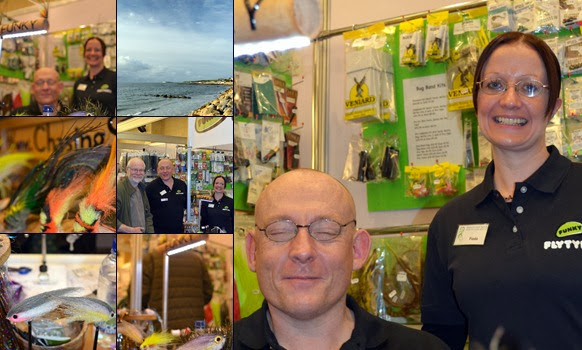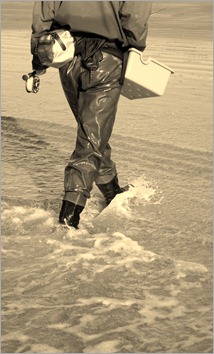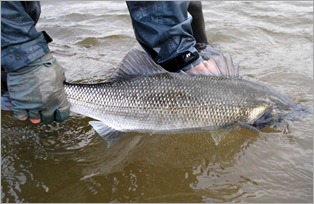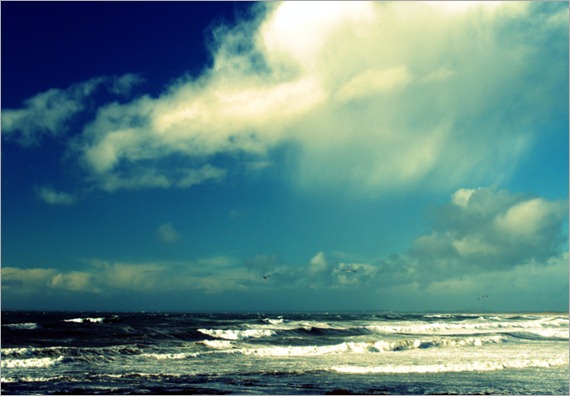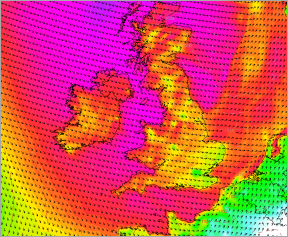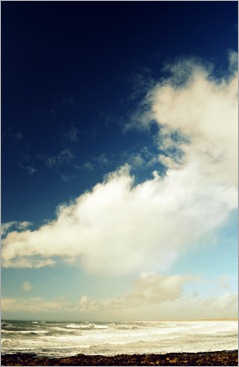Seasonal Forecasting – science or pure speculation?
Source – Met Eireann 15 November 2013
Over the past few weeks the media have carried many stories suggesting that the coming winter will be especially severe; that we should all buy in the snow-shoes, stock up on salt, and batten down the hatches.
With this being Science Week it’s a good time to ask – is there any science behind this talk, or is it all pure speculation? To answer that question, we have to look at how weather forecasts are made.
The old folklore-based weather predictions 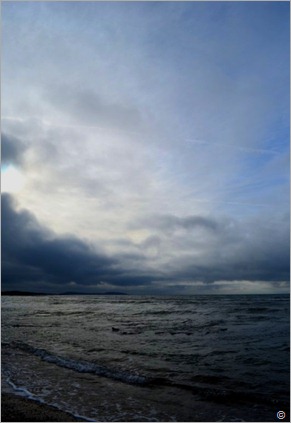 were based on the signs seen in nature. Today’s weather forecasts are no different in that everything starts with weather observations. These days the weather observations come from automated weather stations, from aircraft, from equipment hoisted high into the atmosphere by balloon, from weather radar and from satellite. We can now form a much more accurate picture of what the atmosphere is “doing” at any given time.
were based on the signs seen in nature. Today’s weather forecasts are no different in that everything starts with weather observations. These days the weather observations come from automated weather stations, from aircraft, from equipment hoisted high into the atmosphere by balloon, from weather radar and from satellite. We can now form a much more accurate picture of what the atmosphere is “doing” at any given time.
Our technology for gathering weather observations has improved immensely too, with high-speed communications enabling us to rapidly gather weather information from every country in Europe, and from across the Atlantic to the Americas. This information is fed into powerful computers that contain a mathematical “model” of the atmosphere in which we attempt to describe, mathematically, all that science has learned about the behaviour of the air around us.
Using this mathematical “model” we can calculate how all the weather elements (high pressure regions, low pressure regions, cold air, mild air, frontal systems) develop in time, and this forms the basis for the day-to-day weather forecasts. The more accurate our starting point, the better the forecasts will be; if we started with a perfect picture of the atmosphere, in theory we could have a perfect forecast.
However we can only ever know the starting point approximately; the atmosphere is too vast and too complex to allow us create that perfect picture. As we look further ahead Chaos Theory gradually takes over and the forecast diverges from reality. There is an absolute limit on how far we can forecast ahead with this method, and that limit is thought to be about ten days.
In attempting to look further ahead, we rely on our knowledge of what is happening in the oceans. The atmosphere and oceans are closely linked. The rain that falls over Ireland comes from water that evaporates from the oceans; the warmer the surface of the ocean, the more water evaporates and the heavier the rain will be when it eventually falls.
The oceans have warm and cold currents, just like the atmosphere. The difference is that change in the oceans happens much more slowly and, in some parts of the world, in a more predicable fashion. If we develop a good understanding of how the oceans will behave over the coming month and longer, we have some basis for inferring the weather patterns. Not the day-to-day detail of weather but the larger patterns as to whether it will be warm or cold, wet or dry, windy or calm.
This method has been used successfully in some regions, notably some countries bordering the Pacific and Indian oceans, to develop monthly and seasonal forecasts that are said to “have skill”, or to be correct often enough to be useful. However these oceans have some large and well-understood evolutions of water currents (such as the El Nino) which in turn affect the atmosphere. The Atlantic has no such large phenomena that change regularly; the changes that do occur are subtle and relatively small, and not easy to predict. The inferences that we can make about seasonal forecasts are therefore weak and result in forecasts with “low skill” – not correct often enough to be of great use.
So, scientifically, it is not possible to make any confident forecast of the coming winter. There is absolutely no reason to believe that it will be unusually severe, but no reason either to say it will be exceptionally mild. The “average” winter remains the most likely outcome.
So where do all the predictions of a severe winter come from? From people who do not understand the complexity of the problem, and who make simplistic assumptions. From people who specialise in speculation, not science.
See more bass fishing weather details HERE

